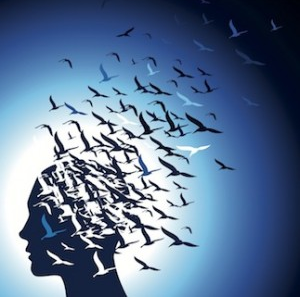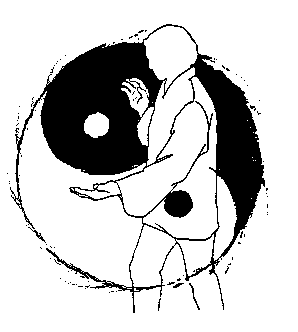January 5, 2015 - 12:12

The Many Faces of Health and its Relation to Empowerment
As a class, we spent the semester working to understand the concepts of health and health literacy. Our class had a range of interests including education, international development, public health, and research- so we each understood the concept of health differently. Some students were interested in community health, while others were interested in health as it relates to the classroom. Some were passionate about specific health crises in certain countries, while others were passionate about mental health, personal health, and personal fulfillment. Our field placements also reflected the variety of ways in which the concept of health applied to our studies- placements at community centers, elementary schools, art programs, and with the elderly all yielded fascinating stories of how health and wellness can intersect with empowerment in different ways.
One unifying idea about health could be that all forms of health (physical, mental, community, relational...) incorporate personal and external acts of empowerment. By empowering oneself and others (acts that we struggled to define throughout the semester), health is achieved in holistic and complex ways.
Diagnosis
Deficit-based
- A practitioner’s determination and characterization of what is wrong with a particular patient according to predetermined standards, whether it be a physical illness, mental illness, emotional issue, or behavioral problem.
Strength-based
- A vehicle that allows the practitioner and patient to understand and effectively approach his/her challenge
- includes the possibilities for the patient in achieving a balanced state of health.
- Similar to Gunderman’s approach to Dementia patients: giving people with dementia more credit and expectations.
Disability
Deficit-based
- An inability to complete certain tasks and live up to certain standards set by society; something which hinders one’s potential and limits what they can accomplish. A lack of skills in specific areas [As defined by the Americans with Disabilities Act (ADA):] a physical or mental impairment that substantially limits one or more major life activities
Desired-based
- An atypical distribution of strengths within a certain area; someone with a learning disability may learn differently from peers and perform at unexpected levels (both high and low) on different academic tasks. A person with a disability may also perform best/succeed in situations/environments that are very different from the situations in which their peers are able to succeed
Disordered Eating
Deficit-Based Model
- Inability to maintain a regular eating pattern, heavily associated with negative body image and unhealthy relationship with food.
Desire-Based Model
- Person knows what they like to eat and what they don’t like to eat. The individual chooses the amount of food or calories that he/she intakes very strictly? Perhaps person sees this as a form of coping mechanism. Can also work to see how person sees their own predicament and work from there.
- unhealthy behaviours such as restricting calorie intake and negative body image that were once adaptive/useful for an individual (to cope?) but now as an opportunity for a person to explore and learn about themselves, to create a deeper more complete + intimate understanding of themselves than might have been possible otherwise
Deficit-Based Model:
- excessive and uncontrollable worry, that is usually irrationally based, that interferes with daily life activities.
Desire-Based Model:
- Work with person to deconstruct their worries and see where they stem from but also assure them that it is not irrational.
- Increased fight-or-flight responsiveness to stimuli (internal and external); person has to work harder and to think/act beyond the adrenaline/anxiety-based response to stimuli, which often requires tools and self-understanding that society does not give or teach. Increased and sustained levels of adrenaline have negative effects on the body, often resulting in issues relating to appetite, breathing, headaches, otherwise unexplained pains, the body’s physiological loss of ability to control adrenaline uptake (sometimes resulting in what is termed “panic attacks” or “anxiety attacks”) etc.
Health
Deficit-based:
- The condition of being well or free from disease.
- the absence of disease or infirmity
Desire-based:
- The act of maintaining and increasing the soundness of ones' body, mind, and spirit .
- “a state of complete physical, mental and social well being and not merely the absence of disease or infirmity” (A Framework for Indigenous School Health); to maintain harmony or balance in all aspects of life
- Ethnography of health in the Hmong community: ‘you fall down and the spirit catches you’

http://healthycampbell.org/wp-content/uploads/2014/03/healthy-living-woman.jpg
Health Promotion
Deficit:
- Processes that serve to communicate to the public the benefits and downfalls of certain behaviors and medicines, emphasizing the transmission of information but failing to account for the social and economic circumstances of individuals not achieving results.
Desire:
- Processes that serve to mobilize people’s collective energy, resources, and skills toward the improvement of health and advocacy for health in order to circumvent the determinants of health. Enables individuals to increase control and improve their health through encouraging changes in their social and environmental circumstances as well as individual behavior.
- The systems of education, social mobilization, and advocacy (adapted from Nutbeam’s model of Health Promotion) within a community which empower its members to actively engage in their health and the health of those around them
Healthy
Deficit-based:
- state in which people have normal vital signs and do not have to take medication. In the “Framework for Indigenous School Health”, there was a mention of the previous notion of health as simply the presence of disease or infirmity (8). This interpretation limits healthy to be based on pathological reasons.
- The state of having no noticeable or intrusive ailments. A lack of mental or physical issues.
- lacking [absence could be a better word] any kind of physical or mental illness
- The lack of disease or illness
Desire-based:
- Healthy refers to the ability to balance between mental, physical, and emotional wellbeing. In the “Schools, Health Literacy and Public Health: Possibilities and Challenges” article, St Leger believes society needs to “shift health into a more dynamic and political domain” (199). If we begin to think of healthy as a dynamic state, we can interpret it as something that constantly changes.
- The state of being open able to participate in life to the best of one’s abilities, by means of not having particular or intrusive? distractions, inconveniences, or difficulties as an impediment to daily life. A wellness of body and mind, informed by physical, mental, social etc. parts of a person’s life that are more than a lack of negatives but also a presence of positives.
- he overall mental and physical wellness of a person compared to those who share a common culture. “Health is the state of complete physical, mental, and social wellbeing and not merely the absence of disease or infirmary” – NCCAH (A Framework for Indigenous Health)
- being of sound body and mind so that one has the ability to engage in every aspect of life, if desired
Literacy, Health
Desire-Based Definition:
- The intrinsic and extrinsic level of health literacy that is simultaneously self-embodied yet responsive to the changing cultural and social contexts, thereby promoting behaviors and relationships conducive to a lifestyle of mindful-action.
- Pg. 8 A Framework for Indigenous School Health: Foundations in Cultural Principles:
- “In order to address school health for Indigenous populations in a culturally appropriate manner, it is necessary to ensure that the process is grounded in an understanding of Indigenous philosophies, specifically worldviews, and to address the divergence between those approaches and mainstream assumptions.”
- “The western cultural view of ‘health’ is as a personal possession – a resource for daily living, while most Indigenous cultures define health as a set of relationships and responsibilities held across a continuum, and which include the environment, families, the tribe and ancestors.”
- Pg. 31 A Framework for Indigenous School Health: Foundations in Cultural Principles:
○ “The ‘what is’ then is not ‘what ought to be’ nor are the exemplary practices all that can be.”
Deficit-Based:
- A level of cognitive and social skills, categorized by a three-tiered hierarchy of “basic literacy”, “intermediate functional literacy” and “advanced critical literacy,” used for synthesizing information to exert greater control over life events and situations.
Pg. 261 Nutbeam:
- “The development of hierarchies of ‘outcomes’ comes from health interventions, which illustrate and explain the linkages between health promotion actions, the determinant of health, and subsequent health outcomes”
Pg. 264 Nutbeam:
- “Such a classification indicates that the different levels of literacy progressively allow for greater autonomy and personal empowerment”
pg 264 Nutbeam:
- “Working to raise the ‘critical consciousness’ of those little or no skills in reading and writing can undertake activities and achieve outcomes which are closely aligned to the definition of critical literacy”
Mindfulness Meditation
Deficit based:
- The act of silencing internal thoughts and external distractions
Desire based:
- The act of recognizing internal thoughts and external distractions, being an active presence with these thoughts and distractions, and taking the steps to mindfully sit with these thoughts/distractions while still grounding yourself in the present

Mental Illness
Deficit based:
- A mental state that’s debilitating, disabling, and that strays from the “norm”
Desire based:
- A mental state that requires an individual to make different choices and depend on different support, but should be considered an equally legitimate state of mental well being.
Patient
Deficit-Based:
- Someone who lacks some aspect of their health and needs a second person or institution to fix or fill that “error” in order for them to feel better.
- someone who feels bad or low and turns to a more “qualified” system or institution to make them feel better
Desire-Based:
- Someone who wants to learn how to feel more open, excited, and healthier, on a daily basis, and seeks support, advice, and remedies from a trusted healer or community.
- A person who uses their health literacy to actively engage with their own health and wellness
- Someone who has recognized a need for medical help and is seeking it as part of her survival and thriving
Practitioner
Deficit-Based:
- A person who determines what is wrong with someone and tries to fix them by filling that person’s “lack” of something with knowledge the practitioner learned and memorized from other teachers.
- Someone who provides aid to the needy in a one-way relationship/direction.
Desire-Based:
- A person who seeks to learn about the reality, difficulties, and daily life of another individual and tries to make that life more accessible to enjoyment by treating a certain difficulty or disability.
- An individual with a unique skill set that supports patients through a reciprocal partnership of learning, teaching, practicing, and listening.
- Dr. Steven Larson, the co-founder of Puentes, stated, “I’m an ER doctor… you get trained to salvage lives and deal with some pretty horrific things, but when you see a 15-year old kid shot in the chest… you say to yourself, ‘The fight’s not in my ER, the fight’s out in the community.’” He’s really trying to express the need to learn about the underlying issues for having a gunshot. (http://blog.cdesignc.org/meet-our-clients-steve-larson-of-puentes-de-salud/)
Prevention
Deficit based:
- The act of inhibiting something from progressing, or the anticipation of needing to block something from happening
Desire based:
- A mindfulness exercise that encourages an individual to recognize his or her situation in order to make the best decisions necessary in moving forward.
Puentes de Salud
Puentes de Salud uses the metaphor “bridge of health” in order to symbolize their holistic mission of improving the health of Philadelphia’s Mexican immigrant population through accessible medical care and educational services.

Deficit based approach-
- Puentes de Salud’s metaphor “bridge of health” symbolizes doctors and educators as the bridges that carry immigrants across a river of sickness. Without such a bridge, immigrants would be forced to swim and perhaps drown.
Desire based approach-
- Puentes de Salud’s metaphor “bridge of health” symbolizes health literacy and self-advocacy as a tool that immigrants can use as a bridge across a sea of illness.
- can also serve as an opportunity to bridge two cultures and views of health, as Puentes is volunteer-based
- also not necessarily to treat already existing illnesses once they occur (of body, community ..) but also as preventative measures to actively create wholeness of body, education, social integration, etc.
Sickness:
Deficit:
- Not having wellness
Desire:
- A physical state that reminds one to not take health or energy for granted
Tai Chi
Deficit based:
- An exercise meant for physical and mental stimulation. An exercise meant to heighten one’s physical and mental capabilities --- how is this deficit really?
Desire based:
- A mental and physical exercise of mindfulness that’s accessible to everybody (regardless of age and ability). Tai Chi teaches mindfulness that’s relevant to everybody.

https://kuomarc.files.wordpress.com/2012/03/taichi2.gif
